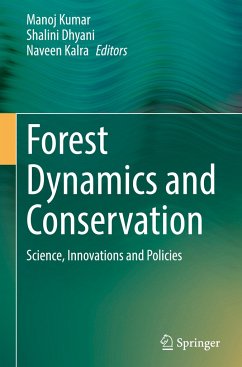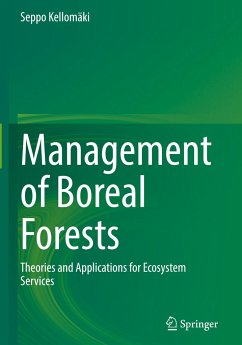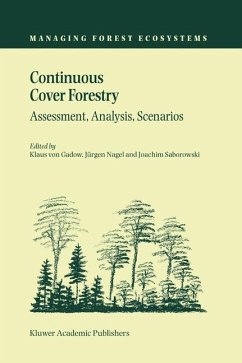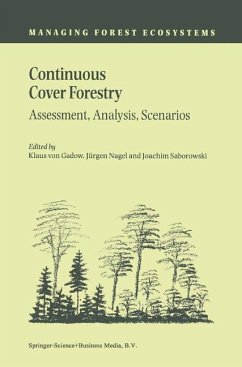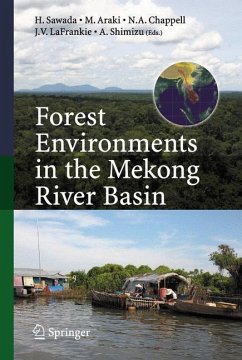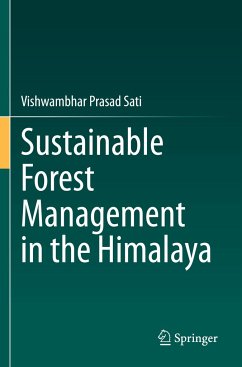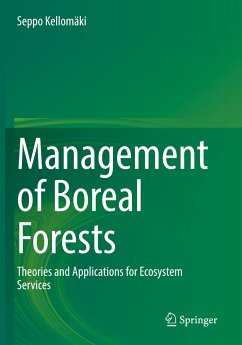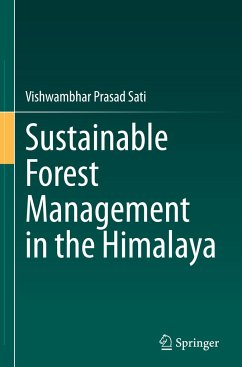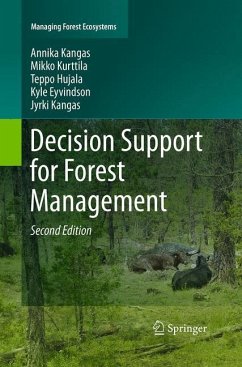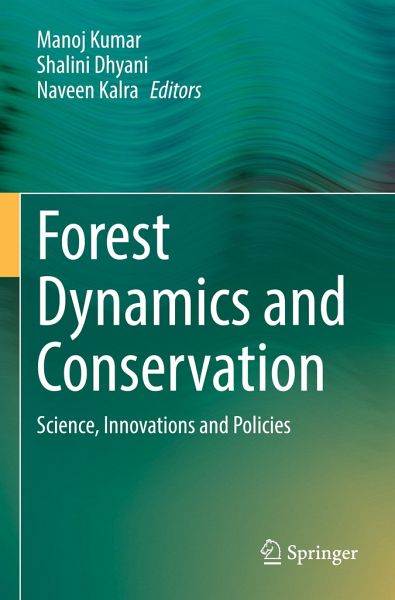
Forest Dynamics and Conservation
Science, Innovations and Policies
Herausgegeben: Kumar, Manoj; Dhyani, Shalini; Kalra, Naveen
Versandkostenfrei!
Versandfertig in 6-10 Tagen
98,99 €
inkl. MwSt.

PAYBACK Punkte
49 °P sammeln!
This book unveils forestry science and its policy and management that connect past and present understanding of forests. The aggregated knowledge is presented to cover the approaches adopted in studying forest structure, its growth, functioning, and degradation, especially in the context of the surrounding environment. The application of advance computation, instrumentation, and modelling has been elaborated in various chapters.Forest ecosystems are rapidly changing due to forest fires, deforestation, urbanization, climate change, and other natural and anthropogenic drivers. Understanding the ...
This book unveils forestry science and its policy and management that connect past and present understanding of forests. The aggregated knowledge is presented to cover the approaches adopted in studying forest structure, its growth, functioning, and degradation, especially in the context of the surrounding environment. The application of advance computation, instrumentation, and modelling has been elaborated in various chapters.
Forest ecosystems are rapidly changing due to forest fires, deforestation, urbanization, climate change, and other natural and anthropogenic drivers. Understanding the dynamics of forest ecosystems requires contemporary methods and measures, utilizing modern tools and big data for developing effective conservation plans. The book also covers discussion on policies for sustainable forestry, agroforestry, environmental governance, socio-ecology, nature-based solutions, and management implication.
It is suitable for a wide range of readers working in the field of scientific forestry, policy making, and forest management. In addition, it is a useful material for postgraduate and research students of forestry sciences.
Forest ecosystems are rapidly changing due to forest fires, deforestation, urbanization, climate change, and other natural and anthropogenic drivers. Understanding the dynamics of forest ecosystems requires contemporary methods and measures, utilizing modern tools and big data for developing effective conservation plans. The book also covers discussion on policies for sustainable forestry, agroforestry, environmental governance, socio-ecology, nature-based solutions, and management implication.
It is suitable for a wide range of readers working in the field of scientific forestry, policy making, and forest management. In addition, it is a useful material for postgraduate and research students of forestry sciences.





